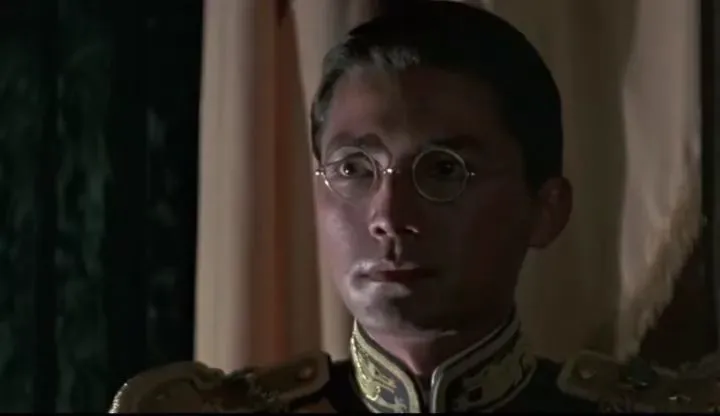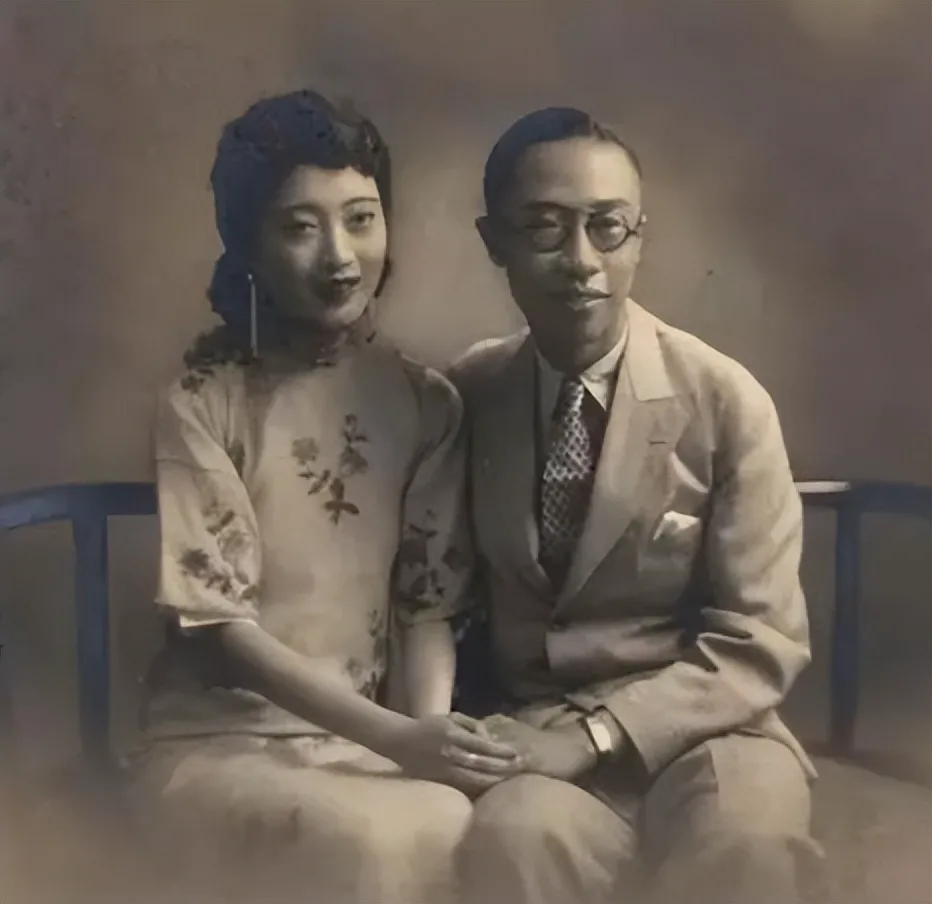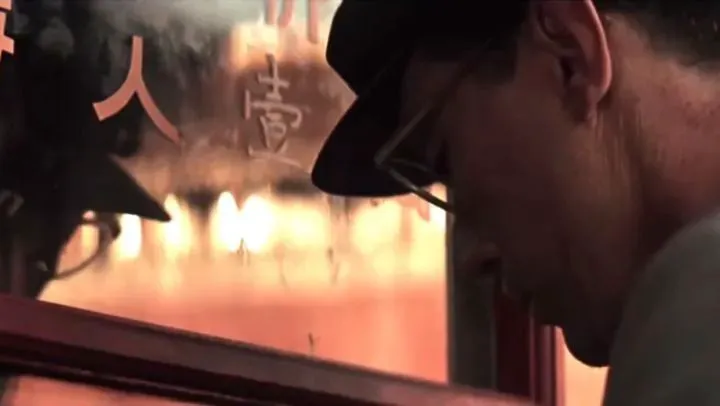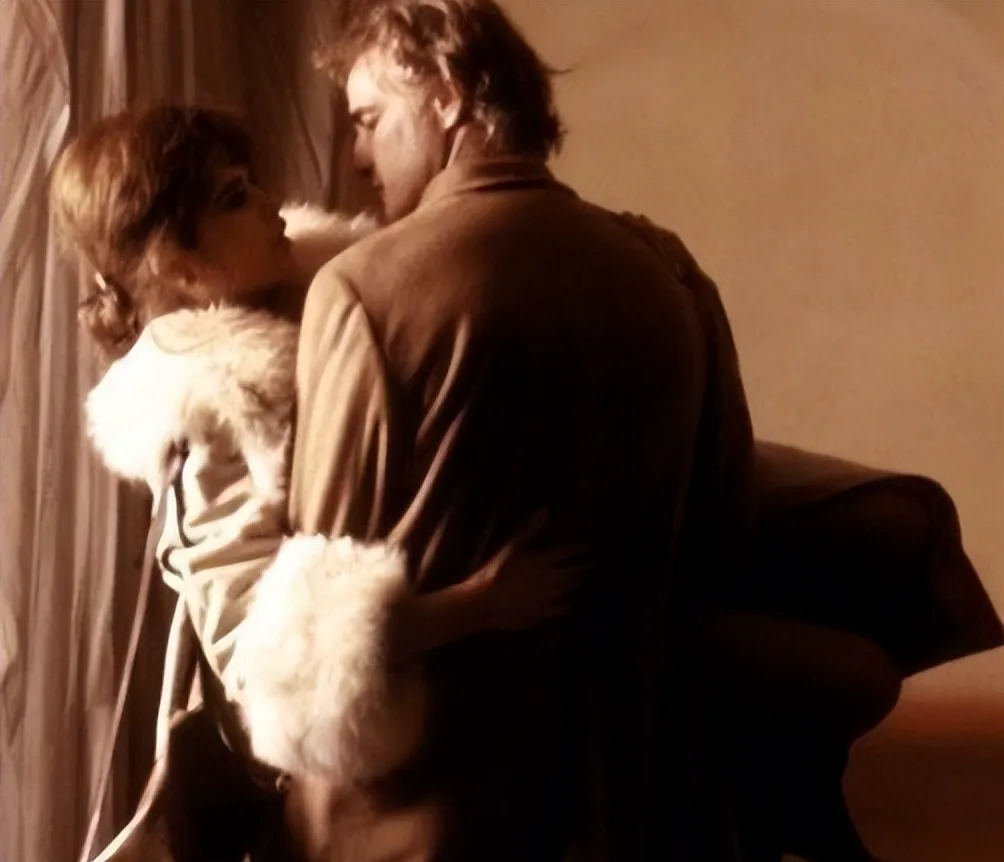The Problematic Legacy of “The Last Emperor”
Bernardo Bertolucci’s “The Last Emperor,” released in the 1980s, swept the Academy Awards, securing nine wins from nine nominations, including Best Picture. For years, it has been hailed as a classic in international cinema.

However, the film arguably paints a sympathetic portrait of Aisin-Gioro Puyi, the last emperor of the Qing Dynasty, and the head of the “Manchukuo” puppet regime. It depicts him as a fundamentally good person, a victim of circumstance, a leaf in the wind, powerless to change his fate. This portrayal has led countless viewers worldwide to sympathize with his life and choices, setting a tone that has influenced subsequent depictions of Puyi in film and television, with lasting and potentially harmful effects.
Distorting History: The Expulsion from the Forbidden City
One example of this distortion is the film’s depiction of Puyi’s expulsion from the Forbidden City. The movie misleads the audience by portraying it as the eviction of a progressive, Westernized emperor who cut his queue, wore Western clothes, dismissed the eunuchs, and learned English. He is shown being driven from his childhood home while playing tennis with his wife, simply because he lacked the military might to resist the warlords. This scene is presented as both poignant and nonchalant. In contrast, the Han Chinese soldiers are depicted as greedy and savage as they storm the Forbidden City.

This portrayal subtly suggests that this mistreatment justified his subsequent collaboration with the Japanese and his role as the head of the puppet state of Manchukuo.
The Reality Behind the “Abdication”
However, the historical reality is that the “Edict of Abdication” and the “Articles of Favorable Treatment for the Qing Emperor” were essentially surrender documents, allowing the Qing imperial family to cling to a diminished existence within the Forbidden City (0.72 square kilometers).
Article 3 of the “Articles of Favorable Treatment” stipulated that “The Qing Emperor may reside temporarily in the palace, and will move to the Summer Palace in the future, with his attendants remaining as before.”
The Forbidden City, originally built by the Yongle Emperor of the Ming Dynasty, was seized by the Qing emperors after the fall of the Ming. With the demise of the Qing Dynasty, their claim to it also ended.
The artifacts within the Forbidden City were the product of centuries of Chinese ingenuity, accumulated through often unscrupulous means by the Qing emperors. After the restoration of China, these treasures rightfully belonged to the entire nation, not to the deposed Qing emperor as his private property.
Puyi’s Actions and Intentions
Puyi and the remnants of the Qing imperial family not only actively participated in Zhang Xun’s restoration attempt but also, during their 12 years of residence in the Forbidden City after the revolution, continued to style himself as emperor and select consorts, all while receiving an annual “allowance” of 4 million silver dollars.

They also tirelessly sought to collude with imperialist powers and warlords to restore the Qing Dynasty. These actions are detailed in Puyi’s autobiography and were widely known at the time.
Puyi and other Qing nobles also used the pretext of eunuchs stealing treasures to sell off artifacts from the Forbidden City at low prices to foreigners, raising funds for their restoration efforts. This resulted in the dispersal of countless treasures overseas, a significant crime against the Chinese nation that should have been severely punished.
The fact that the Beiyang government, which emerged from the Qing bureaucracy, showed leniency, failing to execute Qing royals for the Zhang Xun restoration attempt and not immediately abolishing the violated “Articles of Favorable Treatment,” was remarkably generous.
Consider that in 1646, the Qing Dynasty fabricated charges of “secretly possessing gold seals and plotting with the Southern Ming” to execute ten Ming princes.
Would Puyi and his supporters have abandoned their restoration plans if General Feng Yuxiang had not forced them out of the Forbidden City? Only the naive could believe that.
General Feng’s actions in forcing Puyi to move, nationalizing the Forbidden City, and establishing the Palace Museum were acts of great service to the nation, preventing further looting and sale of national treasures.
Even the later Sun Dianying’s looting of Qing tombs provided them with a convenient excuse to collaborate with the Japanese invaders.
The Emperor’s True Priorities
When Puyi, in his pursuit of becoming the “Emperor of Manchukuo,” was willing to recognize the Japanese imperial family’s “Amaterasu” as his ancestor and welcome replicas of the “Three Sacred Treasures of Japan” for worship, he proved himself to be a traitorous descendant, even in the eyes of his own ancestors. A man obsessed with his imperial dream cared little for the bones of emperors and empresses.
Consider this quote from the last Qing Emperor and “Emperor Kangde” of Manchukuo:
“I don’t care how many people the Japanese kill in Manchuria or how much grain and coal they take away, I will not be satisfied unless I am the Emperor of the Great Qing.”
The Last Scene: A Sentimental Fallacy
The final scene of “The Last Emperor,” where Puyi, after his release from prison, buys a ticket to visit the Forbidden City, is another example of manipulative sentimentality.

It evokes sympathy from viewers who lament that “the deposed emperor is so pitiful, having to buy a ticket to his own home…”
But let’s be realistic. Puyi’s theft and sale of Forbidden City artifacts, which resulted in the dispersal of countless Chinese treasures overseas, is a crime that cannot be excused.
Bertolucci’s Own Moral Failings
Bernardo Bertolucci himself is a controversial figure, notorious for his questionable ethics.
During the filming of “Last Tango in Paris,” he and Marlon Brando improvised a scene without the consent of the 19-year-old actress Maria Schneider. The scene involved Brando using butter as a lubricant in a simulated rape, aiming to capture Schneider’s genuine reaction to the assault.

In a 2013 interview, Bertolucci stated, “We wanted her reaction as a girl, not as an actress. We wanted her to feel humiliated and scared.” He admitted that he never contacted Schneider after the film because “she hated me for the rest of her life.”
Bertolucci acknowledged that the incident was “terrible” and that he felt guilty, but he did not regret it, emphasizing that it was done for the sake of the film and to capture Schneider’s authentic reaction.
Schneider never recovered from the experience. She struggled with drug addiction, depression, and suicide attempts. Three years before her death in 2011, she told the media:
“I felt humiliated and, to be honest, I felt a little raped, both by Marlon and by Bertolucci. After the scene, Marlon didn’t apologize or console me… I should have called my agent or lawyer to the set because you can’t force an actor to do something that isn’t in the script, but I didn’t know that at the time. (During filming) Marlon told me: ‘Don’t worry, Maria, it’s just a movie.’ But even if what he did wasn’t real, the tears I cried were real.”
Schneider was deeply affected by the experience, feeling that she had been reduced to a mere object of lust. She had hoped to be recognized as an actress, but the scandal and its aftermath left her traumatized.
Sacrificing a 19-year-old actress’s well-being for the sake of “artistic truth” is hardly the mark of a master.
The Cult of the “Master”
“The Last Emperor” has been praised by critics and cinephiles for decades, touted as a “unique artistic treasure.” This is partly because film criticism is often dominated by those who uncritically celebrate foreign artists.
Like Bertolucci, Roman Polanski and Woody Allen, who have faced accusations of sexual abuse, are often lauded as masters by these critics.
Even Ozu Yasujiro, a soldier who actively participated in the invasion of China and viewed the Chinese people as livestock, is celebrated as “Asia’s greatest director.”
It is therefore unsurprising that “The Last Emperor” receives a high score of 9.3 on certain rating platforms. In essence, it is a film made by a morally questionable director that romanticizes the Qing Dynasty and whitewashes a traitor, earning accolades from the American Academy Awards and perpetuating a harmful legacy.